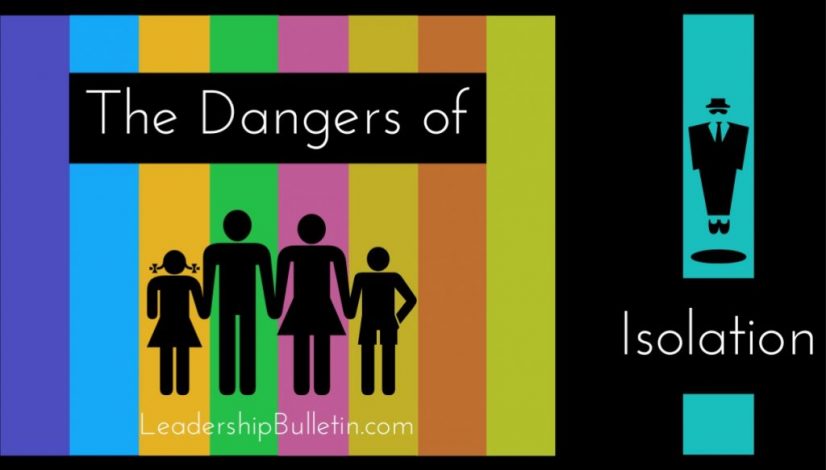The Dangers of Isolation
The most prominent and damaging issue a leader can face in modern time is isolation. Isolation can be created for various reasons. Two of the major reasons are: (1) the development of personal preference during child-development and (2) dismissing follower feedback.
The Formation of Isolation
According to Briggs & Meyers (1995) extraversion or introversion is developed at an early age and is “probably the most deeply rooted preference” (L. 2973-2974). While the development of a preferred personality is presented early within the stages of development it can affect the life of a leader. The second potential formation of isolation can present itself when a leader loses touch with their followers through avoidance. Isolation is often caused by a leaders inability to receive constructive criticism and make changes. Psalm 81:12 concerns the Israelites failing to listen to and their inability to submit to God’s direction (NLT, 1996). It is important to listen to those who are providing counsel and provide positive feedback for the counsel received. When humankind is left to their own devices failure is almost certain. Leadership must not be merely approached communication as a top-down dissemination of information, but must chose to allow communication to work both ways.
The Effect of Isolation
This separation, called isolation, creates the loss of a leaders source of feedback and awareness. This cavity can distort what a leader sees verses what is actually taking place within an organization. In other words, a leader can see their organization in a different way, which causes a leader to run the organization from a tower looking down upon the distorted reality. It is crucial for leadership to receive support and feedback. Kouzes (2010) asserts “leaders need feedback to help keep them on track” (p. 95). Separation in leadership creates the loss of follower influence over a leader, which is crucial to sustain accountability and the development of new ideas. Ultimately a definite feedback void is created. Conchie & Rath (2008) address the importance of a leader’s opinion verses the truth, which can be found in their followers when they wrote, “if you wanted to know why the president of the United States was making a difference in the lives of the American public, would you look to him for the best answers – or would you ask his constituents” (L 479-481)?
Being Free’d from Isolation
Isolation is a subject that is pressing within leadership today. It is important to realize that feedback is a key to advancing organizational objectives and increasing productivity. Kouzes adds, “people’s motivation to increase their productivity on a task increases only when they have a challenging goal and receive feedback on their progress” (2010, p. 288). A leaders potential productivity is increased where feedback is provided. Leaders who are experiencing isolation should strive to achieve feedback from their followers and chose to utilize tasks, which seem daunting to breakout of their isolation. In some instances it takes challenging goals to bring clarity concerning a leaders isolation.
References
Holy Bible: New Living Translation. (1996). Wheaton, IL: Tyndale House.
Kouzes, J. M., & Posner, B. Z. (2010). The leadership challenge. San Francisco: Jossey-Bass.
Myers, I. B., & Myers, P. B. (1995). Gifts differing: Understanding personality type. Palo Alto, CA: Davies-Black Publishing.
Rath, T., & Conchie, B. (2008). Strengths based leadership: Great leaders, teams, and why people follow. New York: Gallup Press.




